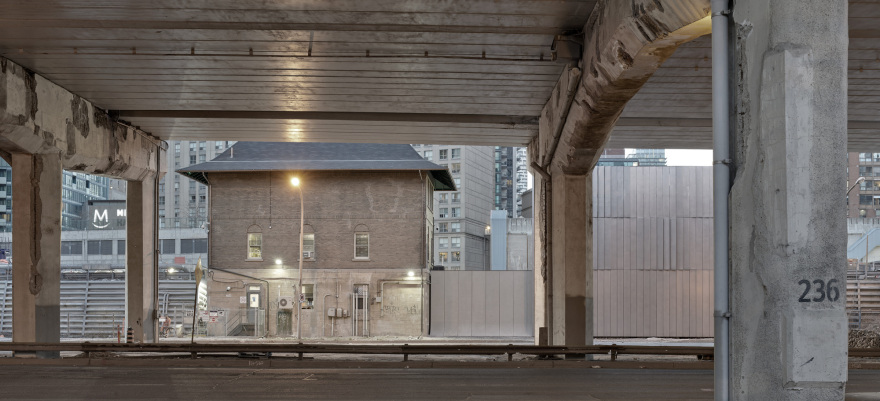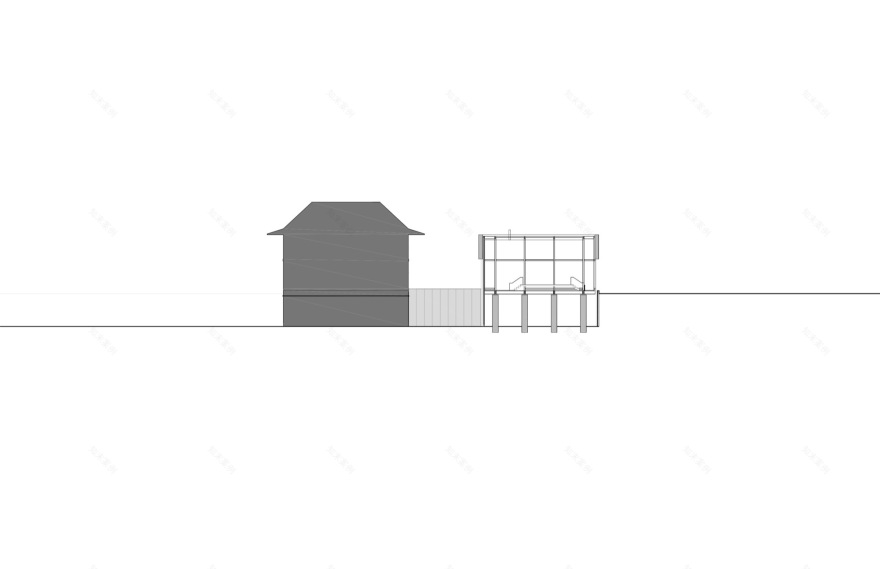查看完整案例

收藏

下载

翻译
Architects:RDHA
Area:3564m²
Year:2023
Photographs:Tom Arban
Manufacturers:AVL Manufacturing Inc.,Black & McDonald,Castle Precast Ltd.
Structural Engineering:Entuitive Corporation
Mechanical & Electrical Engineering:Smith + Andersen
Design Principal:Tyler Sharp
Managing Principal:Bob Goyeche
Project Manager:Patrick Liu
Project Team:Rob Boyko, Marco Travaligni, Ian Huff, Elizabeth Antczak, John Bettio
Program / Use / Building Function:Emergency Power Generator
Heritage Consultant:ERA Architects
City:Toronto
Country:Canada
Text description provided by the architects. Metrolinx, an Ontario Government organization that oversees the improvement of transportation in the Greater Toronto and Hamilton Areas, commissioned RDHA to design a new emergency generator tower to replace a decommissioned one that serviced Toronto’s Union Station. The project is situated on Toronto’s westbound Gardiner Expressway off-ramp to Yonge Street, immediately adjacent to the historic Scott Street Interlocking Signal Tower.
Designed in 1930 for the Canadian Pacific Railway (CPR) by John Wilson Orrock, the Chief Engineer of Buildings, Scott Street is one of three signal towers built in Toronto for the CPR during the same era (the others at Cherry Street, and John Street). With its Italianate round-topped windows, square tower, and hipped roof, the building is considered a significant piece of heritage infrastructure, and it became the prime inspiration for the new addition.
The generator tower, comprised of a generator, a structural system, and a naturally ventilating skin, attempts to respect its historic neighbor, and deliver a similar level of design attention, although through a contemporary architectural language. Our overall goal was to renew appreciation for not only the Scott Street Tower, but also to draw renewed interest towards what are often overlooked, but highly essential, pieces of engineering and infrastructure within the urban context.
Our conceptual approach began with a careful analysis of the heritage architecture to guide and inform the enclosure’s perception, scale, footprint, and elevational composition. The resulting scheme is a shimmering, and reflective formal interpretation of the existing tower, with three corresponding datum lines of lightly polished aluminum, subtly opening and closing to allow ventilation and partial views into the shrouded piece of infrastructural architecture.
The project team strove to establish a highly sustainable design, with architecture, engineering, and materials designed for longevity over time. The building is essentially passive, as the only ventilation and cooling is through the facade panels that can be either opened or closed in direct response to the requirements of the generator. The building is lit with energy-efficient LEDs throughout, with daylight and occupant sensors to reduce the amount of energy used throughout the day. The revealed space between the old and new structures is designed to allow the incorporation of a green-planted urban wall.
In keeping with this overall approach, the new generator structure has been conceived as a contemporary urban object with architectural integrity that honors a heritage asset. It is also as functional as it is an intriguing, beautiful, and breathing sculpture within the industrial landscape.
Project gallery
Project location
Address:Toronto, ON, Canada
客服
消息
收藏
下载
最近



































